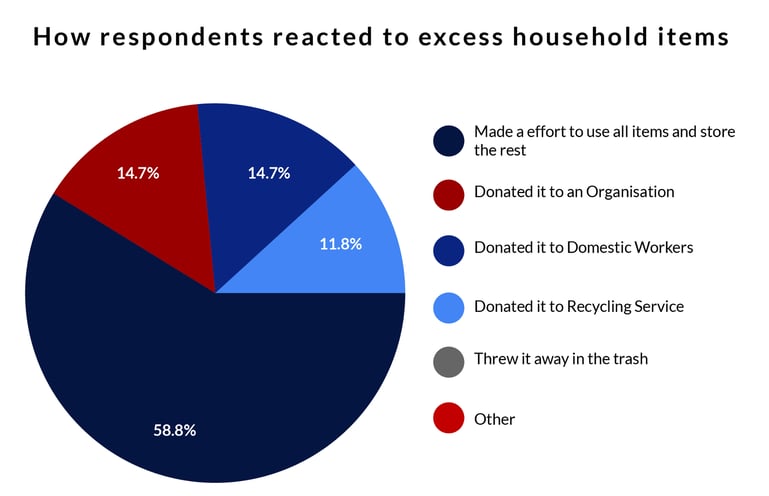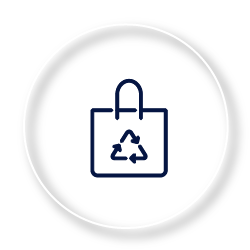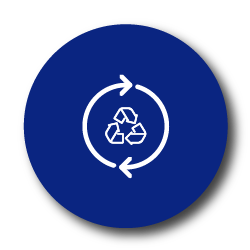In April 2020, interest in the topic “How to live a sustainable lifestyle” increased with more than 4550% in Google searches. This emphasised the interest shown by people wanting to consume more sustainably. It also indicated an increase in their inclination towards brands that actively work towards being more sustainable.
These search numbers show that an emphasis should be placed on sustainable retailing. And it’s not only retailers who should consider it. As a supplier, you also need to ensure that sustainable retailing plays a key part in the future of your business. If the necessary steps towards sustainability are taken now, you can avoid a loss in sales and increase customer loyalty.
2020 has also become known as the year of COVID-19. It has pushed retailers, suppliers and consumers to limits we didn’t know existed and had a lasting impact on shopping behaviour and how we consume.
In this article, we will unpack how consumers changed their behaviour during different hard lockdowns throughout the world as well as its impact on how you as a supplier should think about your future. We’ll also look at how you can implement sustainable practices and how DotActiv can assist you on your sustainable retailing journey.

The change in consumers’ behaviour during hard lockdowns
According to The Fashion Roundtable, the UK generated 67 million tonnes of waste during a “collective wardrobe clean-out” during their first hard lockdown. Shockingly, less than 1% of that waste will be recycled or repurposed, with an estimated increase of 63% in consumption by 2030.
We undertook a small study through survey sampling to determine how consumers’ behaviour towards consuming changed during the first hard lockdown in South Africa.
67.6% of respondents said they undertook a “closet cleanout” with 40.7% of these respondents donating the items to their domestic workers. 29.6% donated to an organisation and the rest disposed of it in other manners. 58.8% of respondents said they made an active effort to use their excess household items, with the rest donating it to organisations.

So what does this mean for you if you’re a supplier? For one, it would be best to readjust your demand and supply strategies to avoid over producing and ultimately contributing to overflowing landfills.
Another factor to keep in mind is a potential second wave of COVID-19 infections and how another hard lockdown would impact South Africans and their consuming behaviour. Currently, many countries are experiencing a second wave of infections and entering their second hard lockdown.The USA recorded their highest total of COVID-19 cases four days in a row, in the second week of November and many states are considering implementing new restrictions.
If South Africa experiences another hard lockdown, will consumers enhance their efforts even more to consume less? Or will they use all the items in their household before disposing of it or restocking on these items? And how would that impact your stock levels?

How can suppliers implement sustainable practices?
Consumers are becoming more aware of the impact of their buying behaviours and consuming behaviours. Knowing this, it’s critical that as a supplier, you need to change your practices to match what shoppers want.
According to custom package solutions company, Packhelp, implementing eco-friendly packaging is now a necessity for brands and suppliers. If a brand uses non-recyclable packaging or overuses plastic (even if it indicates it can be recyclable), consumers might turn towards another brand that incorporates more eco-friendly options.
You can implement the following sustainable packaging strategies in your supply business:
- ship in a smaller package;
- use edible packaging where possible;
- incorporate plant based materials; or
- compostable / biodegradable plastic alternatives.
As a supplier, you should also pay attention to your supply chain as a whole. With technology becoming more advanced and giving consumers more options to ensure they purchase a sustainable product, it is imperative.
You can take the following actions to make your supply chain more sustainable:
Firstly, ensure ethical sourcing of materials and introduce full transparency to your customers regarding this. Secondly, reduce overproduction through efficient supply and demand planning. (This can be done with DotActiv systems and will be discussed in the next section of the article)
Lastly, decrease fossil fuel usage by optimising transportation routes and using courier services that makes an effort to be more sustainable.

How can DotActiv assist suppliers on their sustainable retailing journey?
The relationship between a supplier and retailer is crucial for both parties’ success. The moment you can offer assistance to a retailer, they are more likely to make an active effort to assist you to meet your objectives.
The best way for you to do this is by providing data-driven planograms. This will also help you even out your supply and demand and assist you with accurate planning to ensure you don’t over produce and supply.
If planning is done ineffectively, it leads to excess stock that eventually gets dumped or disposed of, which ultimately leads to pollution and an increase in your green footprint. If a product’s packaging and materials are not already eco-friendly, it is critical that you take the necessary precautions to avoid overproduction, which will ultimately lead to a loss in profit as well.
When you implement data-driven planograms, you can also make use of different reports found within the DotActiv software. These reports can assist you to make any necessary decisions regarding stock, supply, demand and ultimately space allocation. With the custom report function, for example, you can fully customise the reports to suit your requirements and needs.
Meanwhile, with advanced reporting, you can analyse the financial impact of additional demand, analyse a product’s performance on proposed planograms vs the actual planograms and report on proposed vs actual assortment plans.
Retail as we once knew it will not be the same because of COVID-19. The virus has changed consumers' perspectives on so many aspects. That’s not necessarily negative. However, it does mean that suppliers, brands, retailers and businesses in general need to adapt and make the necessary changes to be more sustainable going forward.
Conclusion
By making use of DotActiv's advanced reporting, you gain insight into the supply of your retail products, which ultimately assists you to implement sustainable retailing practices. You can book a consultation with one of our experts or learn more about category management and how it can help you meet consumer demands while the world struggles with COVID-19.


